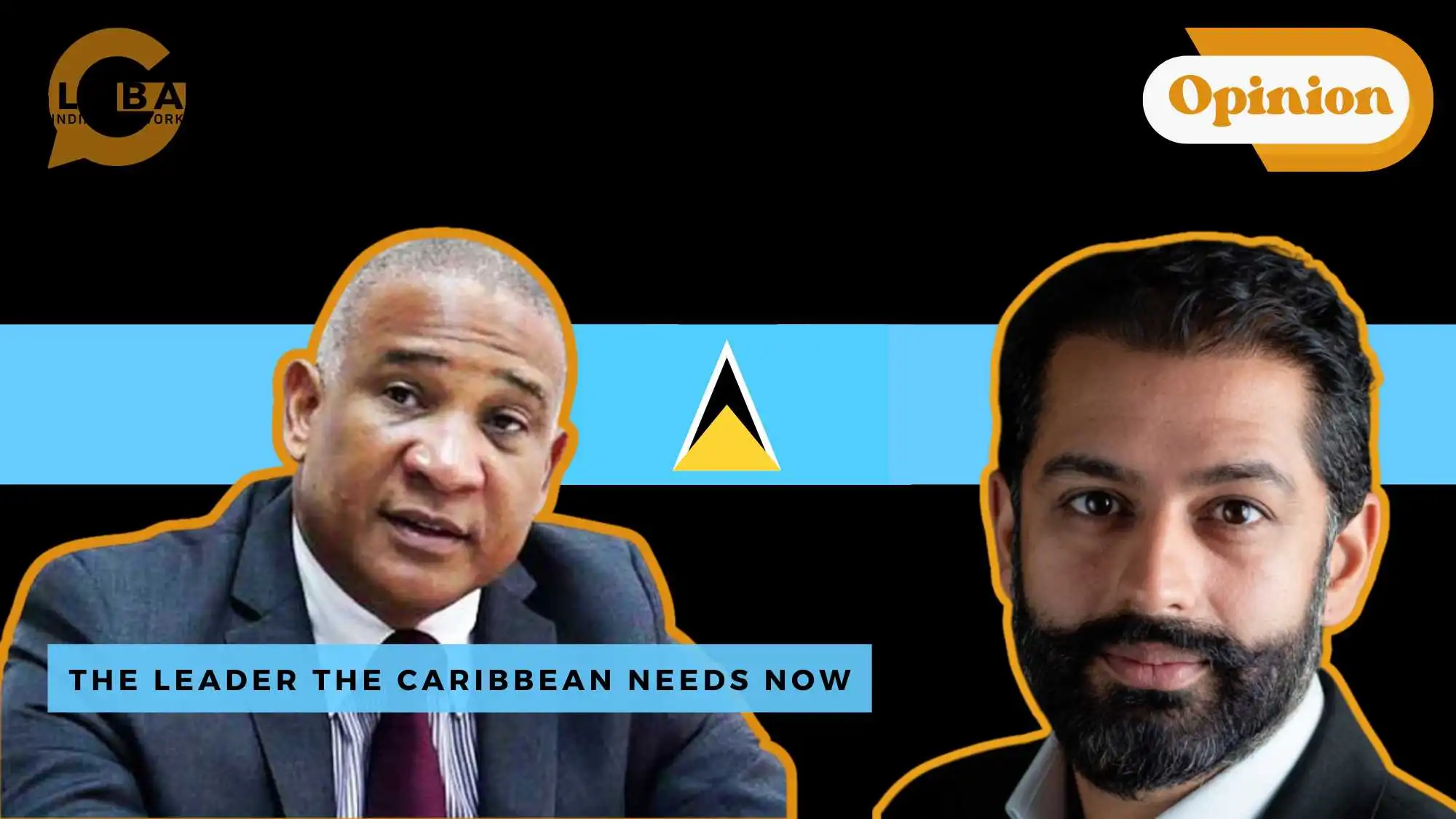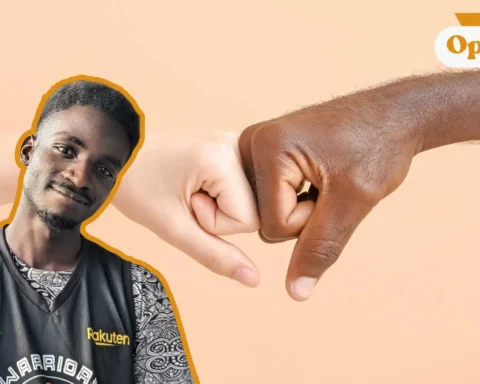In the Caribbean, political figures as polarising and steadfast as Saint Lucia’s Deputy Prime Minister Ernest Hilaire (who also serves as the Minister for Tourism, Investment, Creative Industries, Culture and Information) are rare. Over the seven years I’ve known him, our relationship has traversed admiration, disagreements, and back again. Yet, despite our clashes, I’ve come to appreciate that Ernest Hilaire is precisely the kind of leader the Caribbean needs. He’s driven by a fierce sense of duty and a unique vision of justice, unfazed by popularity metrics or vote-bank politics; he has the testicular fortitude that others wished they had.
Ernest is uncompromising and unapologetically forthright—a quality that sometimes isolates him in the court of public opinion but often reveals his genuine commitment to Saint Lucia’s future. For instance, even as he approaches sixty, Ernest remains in astonishing shape, as if his politics and purpose fuel him. Every time I see him, it’s a gentle reminder of direct contrasts to my own greying hair and sometimes lack of. His energy is a reflection of his passion as if he’s tapped into some political elixir of life that few others in the region possess.

I first encountered Ernest during a defining moment for Saint Lucia. At the time, I had created a major feature about the country, published in the Miami Herald. This wasn’t just a report; it was a bold statement on Saint Lucia’s future. In his piece, Ernest articulated a powerful vision where “economy must meet ecology,” calling for development that not only advanced the country economically but also preserved its ecological wealth. This idea resonated deeply, sparking debates across the U.S. and beyond. Here was a politician championing a future where progress didn’t mean sacrificing the land and sea that give Saint Lucia its unique identity.
Articles featured in the Miami Herald
That piece in Miami Herald was more than just timely; it was prophetic, a catalyst of change, and it placed government officials in the public and international eye. While many leaders overlook long-term implications in favour of short-term gains, Ernest saw a future that respected both growth and heritage. The public’s response to his words suggested that people connected with this message, yet within the Caribbean, he’s not always credited for the foresight he demonstrated so early on. His belief in merging economic ambitions with ecological respect has become one of the hallmarks of his leadership—a legacy that is still evolving.
Years later, under the previous administration, my team at NazranRoth, under the now Global Indian Network, was awarded a contract to rebrand the Citizenship by Investment Program (CIP) for Saint Lucia. Our approach moved beyond merely “selling passports.” We aimed to reshape the program into one that emphasised Saint Lucia’s unique beauty, strong leadership, and commitment to community building and national prosperity. Under Ernest’s administration, which carried these plans forward, the CIP saw remarkable progress, achieving substantial returns for the nation. However, the Caribbean sometimes suffers from “too many chefs spoiling the broth.” In the CIP’s case, various parties claimed credit, diluting what could have been a more powerful program and heightened social custodianship.
Speaking at the Dubai Expo
A few years ago, Ernest invited me to speak at the Dubai Expo to discuss the CIP’s impact. This was an opportunity to emphasise the “softer arc” we’d integrated into the program—a more community-oriented vision that positioned Saint Lucia’s CIP not merely as a transactional exchange but as an investment in the island’s social and economic fabric. By connecting this initiative directly to the communities it sought to uplift, we brought a sense of purpose that transcended individual gain, resonating with those who value meaningful contributions. Ernest’s invitation underscored his respect for that approach and his genuine belief in building an investment program that would benefit Saint Lucians at every level.
Despite some of our fiery disagreements—moments when we might have yelled down the phone at each other—Ernest has always shown remarkable decorum, even when fiercely challenged. He maintains a level of respect in his relationships that is rare in Caribbean politics, setting him apart from many of his peers. And while he can be polarizing, I believe he’s often misunderstood by the wider public.
At the WTM
This deeper side of Ernest was evident just yesterday when we met at the World Travel Market. It was one of those moments when, despite everything, I found myself deeply and positively frustrated by him. Despite suffering a fragile voice, which itself has a sense of irony. Here’s a man who, regardless of the pressures of the political arena, doesn’t waiver from his convictions, yet his humanness is very rarely seen by the international and general public. I don’t always agree with him, but the more I see, the more I respect his commitment. Ernest will fight passionately for what he believes best for his nation, whether popular or not, and in today’s world, that’s rare.
When my father passed away, Ernest was among the first to offer his condolences and to ask about my family. This is the other side of him, the man who values relationships beyond politics. That sense of loyalty and empathy is as much a part of him as his political drive. While our conversations are often intense, they’re also respectful and, dare I say, enlightening. He’s a gentleman—a quality that, while understated, is a powerful testament to his character.
Ernest Hilaire embodies the kind of leadership that the Caribbean desperately needs.
He’s not swayed by short-term rewards or by the temptation to do what’s convenient. His dedication to Saint Lucia’s long-term prosperity is genuine, and his vision is one that goes well beyond traditional political boundaries. The Caribbean, particularly at this juncture, needs figures like Ernest who will provoke opposition, challenge conventional thinking, and make tough decisions not for themselves, but for the greater good.
At times, he is a grudging hero in my eyes. He will push the boundaries of tradition, make choices that may alienate him, and yet maintain his own moral compass. Ernest’s brand of leadership, one that’s driven by conviction rather than the winds of popularity, is rare but crucial. As more Caribbean nations grapple with the balance between modern progress and preserving their heritage, leaders with Ernest’s guts and foresight will only become more essential.
In the end, Ernest Hilaire may be divisive, and he may often be misunderstood, but he is a leader of conviction, and he possesses a vision that combines both legacy and progress. Since we launched the Global Indian Podcast, he has not only been receiving our episodes but also actively sharing his thoughts and feedback. As I see it, he’s the right politician at the right time, someone who will push Saint Lucia—and perhaps the Caribbean as a whole—toward a future that’s thoughtful, sustainable, and driven by an unyielding sense of duty. True leaders are seldom universally liked, but their impact is lasting. Ernest Hilaire, without question, is one such leader and, I dare say, friend.

CHECK OUT OTHER PODCASTS ON SAINT LUCIA:
- Is It the End of Democracy? An Exclusive Exposé on the St Lucian Government with Dale Elliott
- Inside St Lucia’s Battle Against Diabetes with Dr Stephen King
- Queen’s Jubilee and Demands for Reparations: St. Lucia’s Struggle for Autonomy with Dr Adrian Augier
- Creating a Gang-Free Society: The Green Revolution in St. Lucia with Andre de Caires
- Is Saint Lucia Seeing the Downfall of Democracy? | Insights from Guy Joseph









